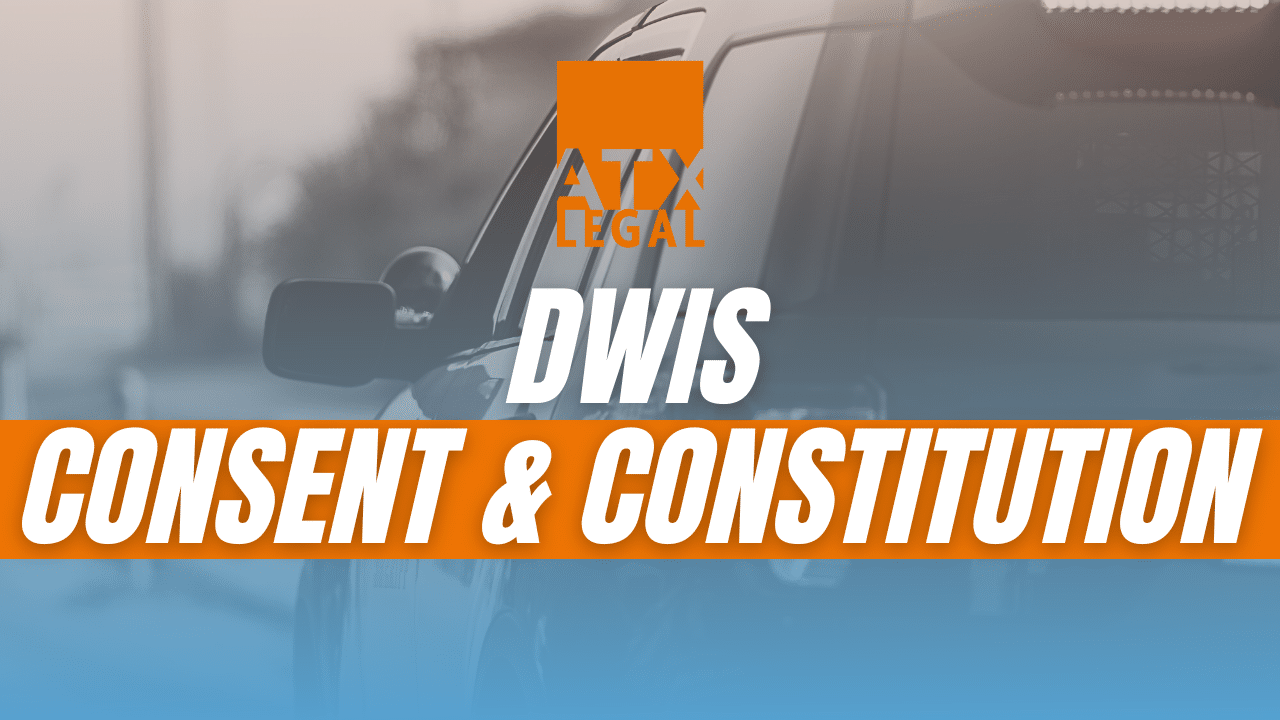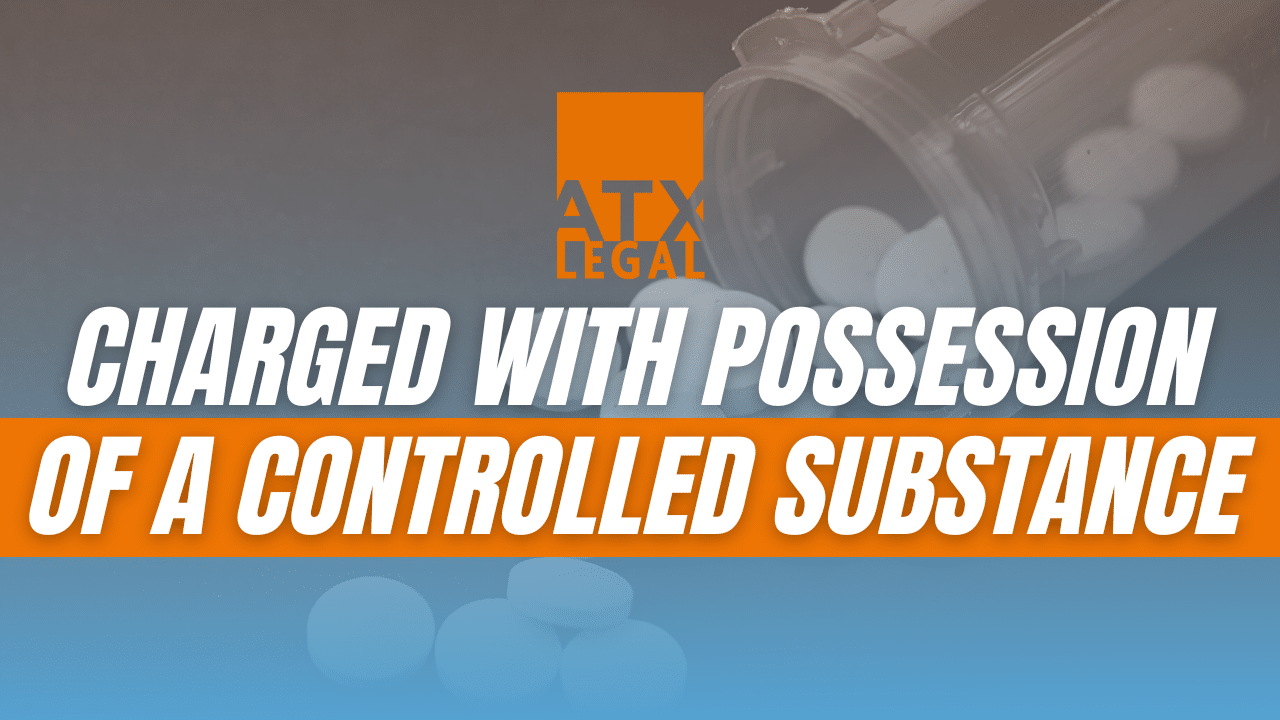DWIs: Consent and the Constitution
There is a lot of confusion over when a police officer has the right stop you, and what that officer can do once you have been stopped. Adding to the confusion, in Austin we often have so-called “No Refusal” weekends for SXSW and holidays . Does this mean you really can’t refuse a breath or blood test? Of course not. Just like any other weekend, a police officer charging you with a DWI must have your consent to collect evidence (for example, a breathalyzer test or a blood draw). Without your consent, they need a warrant. This requirement is guaranteed by the Constitution, and Austin cannot just decide to abrogate your constitutional rights because it’s a holiday.
So what exactly is a “No Refusal Weekend”?
All “No Refusal” means is that the police will have additional resources at their disposal. Once someone refuses a breath or blood test when stopped on suspicion of a DWI, it’s easier for them to obtain a warrant for a blood draw. What additional resources, you ask? On “No Refusal” days, APD will deploy the BAT Bus, a four-wheeled crime fighting machine. I didn’t make up that name; BAT stands for “Breath Alcohol Test”. Bus stands for bus.
The BAT bus is complete with medical equipment for blood draws, breathalyzers, and even a traveling magistrate judge who is ready and willing to sign a warrant. I wonder if he wears a cape? [I originally wrote this article in 2016, and APD has sadly discontinued use of the BAT bus, as far as I know.]
So there is some truth to the term “No Refusal”, because it allows police to quickly get a warranted blood draw if a suspect does refuse a breathalyzer test. However, it was likely named to confuse partiers into thinking that they have truly given up the right to withhold consent to warantless searches.

Field Sobriety Tests
Another issue relating to consent and DWIs are Field Sobriety Tests. You probably know what a field sobriety test is: hop on one leg, walk a straight line, cluck like a chicken, etc. etc. When a police officer suspects a DWI and wants to test your breath, he will give you verbal and written warnings – similar to Miranda warnings – letting you know that you have the right to refuse. They have to make it very clear so that you are informed about exactly what you are consenting to. The same is true if they want to take your blood without a warrant.
There are no such warnings with Field Sobriety Tests. Why not? Well, if you have a Texas driver’s license you have already consented. It’s in the paperwork you signed, right there in the fine print. I’ll give you a minute – go ahead and check. Oh you threw it away before reading it? Well it’s in there, I promise. What this means is that if you are under suspicion of a DWI, an officer won’t ask you to consent. He’ll just tell you to start hopping on one leg while reciting the number sequence from Lost.
Does this mean that you have to do it? No! Even though you consented to a field sobriety test when you got your license does not mean that you cannot withdraw consent at any time. Tell the officer in no uncertain terms that you do not wish to participate in any tests.
This is important because Field Sobriety Tests are very subjective. One test involves imagining a straight line. If the officer perceives that you walked off of this imaginary line, he will score it against you. Because the line isn’t there, there is no objective criteria for the test. These officers aren’t intent on being objective; they want arrests, and they are going to say you stepped off of the line.
The same is true with nystagmus. Nystagmus is the jerkiness of the eyes that officers look for when they have a suspect follow a pencil from left to right and back. The problem with this test is that there is no way of objectively judging whether it was performed correctly by the officer. Unlike the walk-and-turn test and the one-leg stand, it is usually impossible to tell from the DWI video whether nystagmus is actually occurring. We just have to trust in the officer’s abilities and unbiased nature – always a dubious proposition. The bottom line is that you don’t want to rely on the judgment of an officer that needs an arrest to fill out his or her quota for the month.
DWI Check Points
Check Points are not an issue in Texas (yet), because we are one of 12 states where they have been disallowed by courts. The Supreme Court found them to be constitutionally valid in Michigan Dept. of State Police vs. Sitz. The reasoning goes that no, police cannot just stop people at random, because police bias might lead to injustices such as racism. However, if there is an unbiased, systematic way of choosing who is stopped, then this is permissible. This can be every third car, or every single car that goes through the checkpoint. It’s constitutional.
Florida does have sobriety checkpoints, and recently a photo of Boca Raton attorney Warren Redlich went viral when he challenged them by posting a refusal sticker on the window of his car. Whether he’s right or not, he certainly voices an opinion that I think many American’s agree with – that police should not be allowed to intrude without some suspicion that wrongdoing is occurring.
DWIs present challenges for lawmakers. On one hand, nobody wants more drunk drivers on the road. On the other hand, it is very easy for police actions to intrude into the lives of law-abiding citizens. It can be easy to cross the line and create laws where the positive results are not justified by the unnecessary intrusions. As a defense attorney, it is not my goal to keep drunk drivers on the streets. It is my job to assure that those who are suspected of a DWI are treated fairly by our police and criminal justice system.
Please visit my website if you would like more information about DWI defense in Travis, Hays or Williamson counties.


